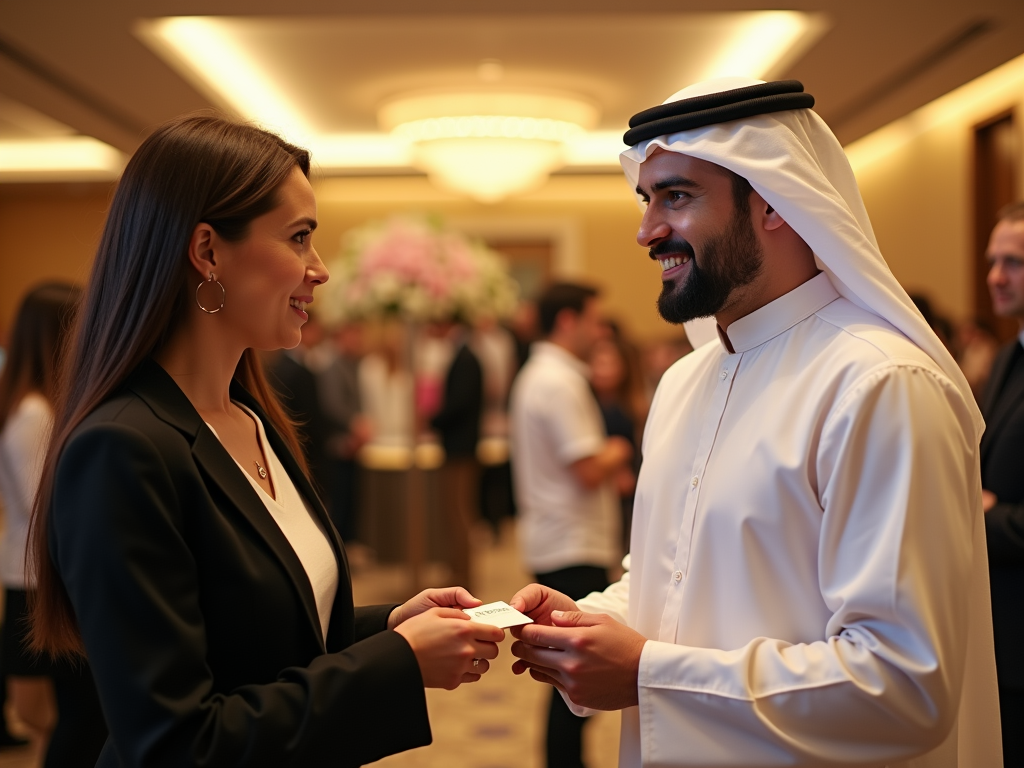The business landscape in Dubai is a melting pot of cultures, serving as a hub for various nationalities and industries. Understanding the business etiquette and cultural norms in this vibrant city is essential for professionals looking to establish relationships and thrive in the local market. From communication styles to dress codes, mastering these norms can significantly affect your success in Dubai’s diverse business environment.
Understanding the Importance of Business Etiquette

Business etiquette in Dubai is deeply rooted in Arab values and traditions, emphasizing respect, patience, and hospitality. Grasping these cultural undercurrents is critical for anyone looking to forge professional connections in the region. Polite behavior, particularly in initial meetings, is paramount. It’s essential to approach business interactions with a sense of respect for local customs.
In addition, being aware of the significance of personal relationships in business can make a substantial difference. Emiratis often prefer to establish trust and rapport before moving onto formal discussions. This means that business professionals may spend considerable time socializing and building a personal connection before discussing deals or contracts.
In Dubai, specific business practices have become standard and should be observed to ensure effective communication and relationship-building. Below are some key practices:
- Greeting Etiquette: A handshake is typical; however, be cautious of cultural norms regarding gender, as women may not extend their hand first.
- Business Cards: Always carry business cards and present them with your right hand. If available, include Arabic translations, as this shows respect and effort.
- Meeting Punctuality: While being on time is vital, be prepared for meetings to start later than scheduled.
- Dress Code: Dress conservatively and formally. Men should wear suits, while women should opt for professional attire covering arms and legs.
- Respect for Customs: Avoid discussing sensitive topics such as religion or politics, and respect local customs and holidays.
Navigating Dress Codes in the Business World

The dress code is a significant aspect of business etiquette in Dubai. Professional attire is a must, making a strong first impression. For men, tailored suits in neutral colors are acceptable, with a preference for formal shoes. Women should wear conservative business attire; dresses or skirts should be knee-length, and sleeves should cover the shoulders.
During the warmer months, light fabrics are advisable due to the climate, but maintaining formality is crucial. In more casual settings, business casual may be acceptable, though it is wise to err on the side of caution. Ultimately, showing respect for local customs and dressing appropriately speaks volumes about your professionalism and mindfulness of the culture.
Hospitality is an integral part of Dubai’s culture, and this extends into the business realm. When engaging in business negotiations or meetings, expect that hosting is often a customary part of the proceedings. It might include sharing refreshments or meals as a sign of goodwill and friendship. Accepting invitations to meals signifies respect and openness to collaboration.
Building relationships through socializing can also take precedence over structured meetings. Clients and colleagues may prefer to meet for coffee or lunch, which can lead to more relaxed, open discussions. Such occasions are also opportunities for a deeper understanding of personal values and preferences, enhancing trust between parties.
Conclusion
Understanding and adhering to business etiquette and cultural norms in Dubai is critical for success in this multicultural city. By respecting local customs, practicing proper communication, and navigating dress codes effectively, professionals can significantly enhance their business relationships. Ultimately, the foundation of successful business conduct in Dubai lies in recognizing the importance of personal relationships and embracing the diverse cultural elements that shape the local business landscape.
Frequently Asked Questions
1. What should I do if I accidentally offend someone in Dubai?
Apologize sincerely and express your respect for their culture. Understanding that mistakes can happen is important, and Emiratis typically appreciate efforts to correct them.
2. Are business negotiations typically fast-paced in Dubai?
Negotiations may progress at a slower pace than in Western countries. Emphasis is placed on building relationships before a deal is finalized.
3. Is it necessary to learn Arabic for doing business in Dubai?
While knowing Arabic is beneficial, English is widely spoken in the business environment. Demonstrating respect for Arabic culture by learning basic phrases can help create goodwill.
4. Should I give gifts in a business context?
Giving gifts can be appropriate, but ensure they follow the customs of the culture. Avoid gifts that are personal or extravagant, focusing instead on modest, branded items that show appreciation.
5. Can I discuss religion or politics in business meetings?
It’s best to avoid sensitive topics such as religion or politics in business discussions, as these can lead to misunderstandings or discomfort.


